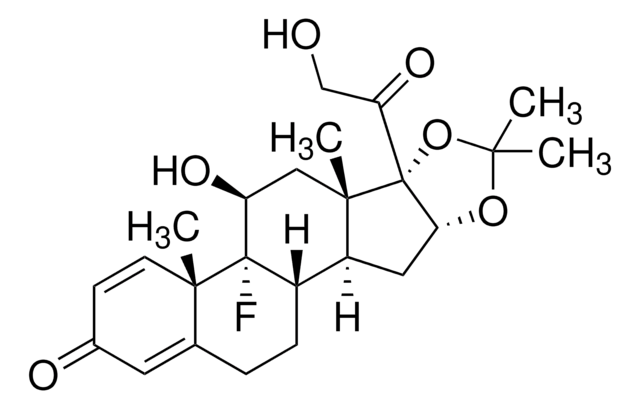50483-U
Ascentis® Express 90 Å Phenyl-Hexyl (5 μm) HPLC Columns
L × I.D. 15 cm × 4.6 mm, HPLC Column
Synonym(s):
Core-shell (SPP) Fused Core Phenyl HPLC column
About This Item
Recommended Products
product name
Ascentis® Express Phenyl-Hexyl, 5 μm HPLC Column, 5 μm particle size, L × I.D. 15 cm × 4.6 mm
material
stainless steel column
Quality Level
Agency
suitable for USP L11
product line
Ascentis®
feature
endcapped
manufacturer/tradename
Ascentis®
packaging
1 ea of
parameter
60 °C temp. range
600 bar max. pressure (9000 psi)
technique(s)
HPLC: suitable
LC/MS: suitable
L × I.D.
15 cm × 4.6 mm
surface area
90 m2/g
impurities
<5 ppm metals
matrix
Fused-Core particle platform
superficially porous particle
matrix active group
phenylhexyl phase
particle size
5 μm
pore size
90 Å pore size
operating pH
2-9
application(s)
food and beverages
separation technique
reversed phase
Looking for similar products? Visit Product Comparison Guide
Related Categories
General description
Legal Information
related product
required but not provided
Storage Class Code
11 - Combustible Solids
WGK
WGK 3
Flash Point(F)
Not applicable
Flash Point(C)
Not applicable
Choose from one of the most recent versions:
Certificates of Analysis (COA)
Don't see the Right Version?
If you require a particular version, you can look up a specific certificate by the Lot or Batch number.
Already Own This Product?
Find documentation for the products that you have recently purchased in the Document Library.
Our team of scientists has experience in all areas of research including Life Science, Material Science, Chemical Synthesis, Chromatography, Analytical and many others.
Contact Technical Service








